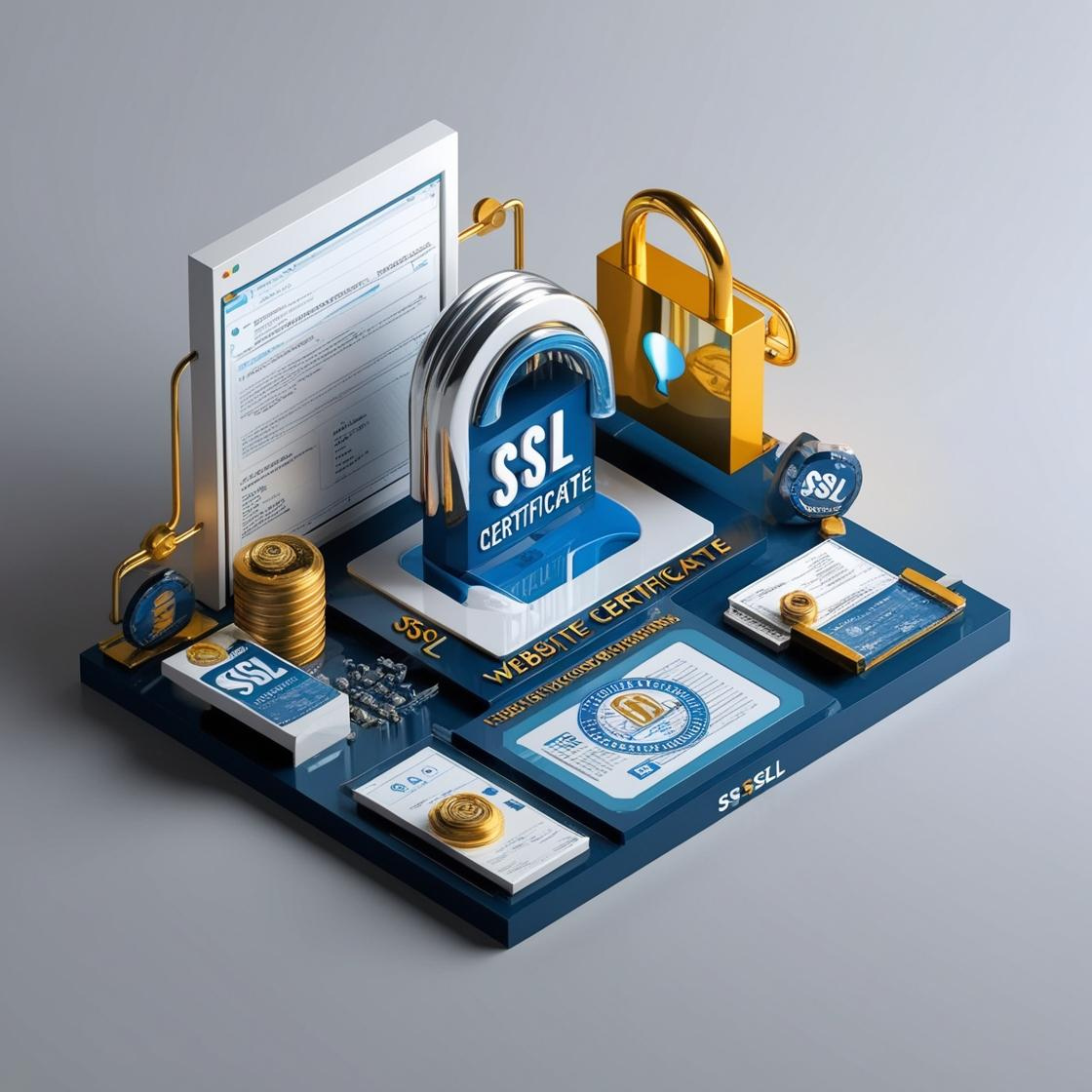In the world of the internet, security is becoming increasingly crucial by the day. Websites carry a significant responsibility to protect users’ personal and financial information. At this point, the SSL certificate comes into play. But what is an SSL certificate, how does it work, and why is it so essential for securing your website? Let’s explore the details of SSL certificates in a way that is understandable to both technically proficient individuals and newcomers to the topic.
İçindekiler
What is an SSL Certificate?
SSL (Secure Sockets Layer) is a protocol that creates a secure connection between your website and your users. An SSL certificate encrypts the information transmitted between your website and visitors, making it impossible for malicious third parties to intercept. Websites with an SSL certificate installed begin their URLs with “https” and usually feature a padlock icon.
How Does an SSL Certificate Work?
An SSL certificate provides two-way security. Firstly, it ensures that data entered by users on the website (passwords, credit card information, personal details, etc.) is encrypted and transmitted securely to the server. Then, it also secures the data sent from the website to the users. During this process, both the browser and the server use an encryption key to communicate. Data becomes decipherable only by the relevant parties due to this encryption key.
Types of SSL Certificates
SSL certificates are offered in different types to suit your site’s needs. Here are the most common types of SSL certificates:
- Domain Validated (DV) SSL Certificate: Provides basic validation and is generally suitable for blogs and small businesses. This certificate is relatively easy to obtain and can be quickly installed.
- Organization Validated (OV) SSL Certificate: Provides a medium level of validation and requires additional documents to verify the identity of the business. It is ideal for corporate websites.
- Extended Validation (EV) SSL Certificate: Offers the highest level of security and undergoes a detailed validation process. It is commonly preferred by large businesses and e-commerce sites. It is displayed with a green address bar in browsers.
Ways to Secure Your Website
An SSL certificate is just one way to enhance your site’s security. Let’s explore other steps you can take to further secure your website:
1. Use Strong Passwords
You should use strong, hard-to-guess passwords for accessing your website’s admin panel. Ensure your password includes letters, numbers, and special characters. It’s also important to change your password periodically for added security.
2. Regular Software Updates
The software used on your website (CMS, plugins, themes, etc.) should be regularly updated. These updates close potential security vulnerabilities and make your site more secure.
3. Implement a Firewall
A firewall provides an additional layer of protection by preventing malicious attempts on your site. Using a Web Application Firewall (WAF), you can filter out malicious traffic directed at your site.
4. Ensure Database Security
It’s also important to secure your website’s database. By taking measures against attacks like SQL injection, you can protect your database from unauthorized access.
5. Regular Backups
Despite all security measures, unexpected situations can occur. Therefore, regularly backing up your website is crucial. In the event of a cyber-attack or technical issue, backups allow you to quickly restore your site.
Impact of SSL Certificates on SEO
An SSL certificate not only enhances security but also positively affects your website’s SEO performance. Google gives higher rankings to sites with SSL certificates as part of its efforts to promote security. Thus, a website with an SSL certificate installed has an SEO advantage over those without one.
Websites without an SSL certificate can be perceived as insecure by visitors. Browsers label non-SSL sites as “Not Secure,” issuing a warning to visitors. This can shake user confidence in your site and negatively impact your traffic.
Where Can You Obtain an SSL Certificate?
Obtaining an SSL certificate is quite straightforward. Many hosting providers offer SSL certificate services. Additionally, some certificate authorities (CAs) provide SSL certificates, either paid or for free. Among free SSL certificates, Let’s Encrypt is the most popular and offers a secure option. However, paid certificates, which provide more advanced validation, are usually preferred for corporate or e-commerce sites.
Conclusion
Securing your website, protecting your users’ information, and achieving better rankings in search engines is crucial. An SSL certificate is one of the most important steps you can take to ensure this security. Whether you are a personal blog owner or manage a large e-commerce site, installing an SSL certificate can enhance the security of your users and your site.
If you want to fully secure your website, not just with a padlock icon but through comprehensive measures, don’t forget to take additional security steps such as using strong passwords, updating software, installing firewalls, and ensuring database security.





